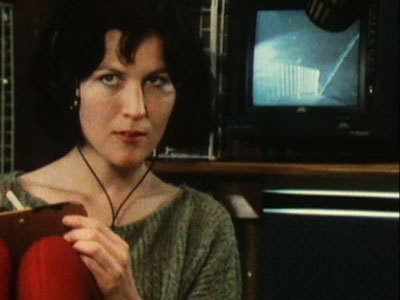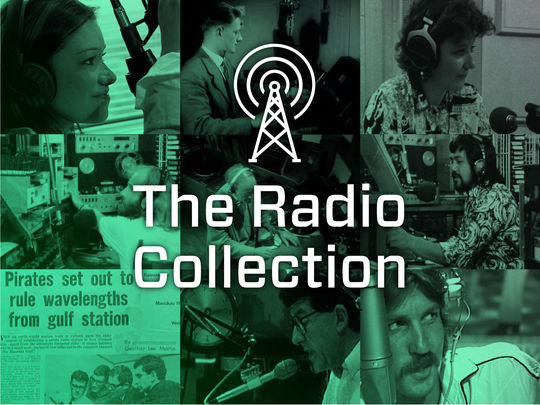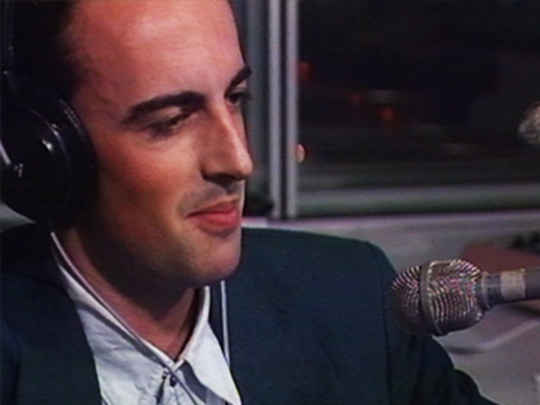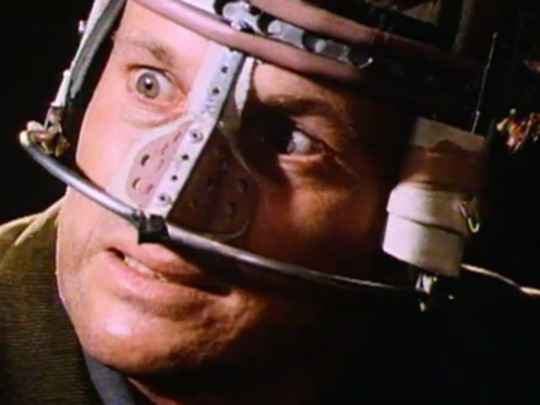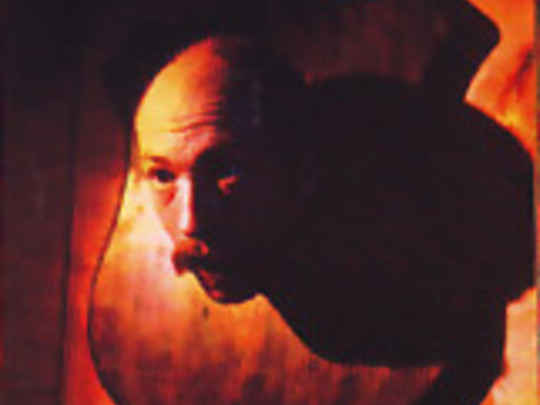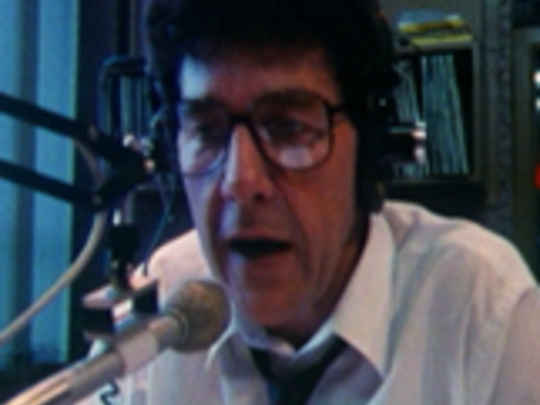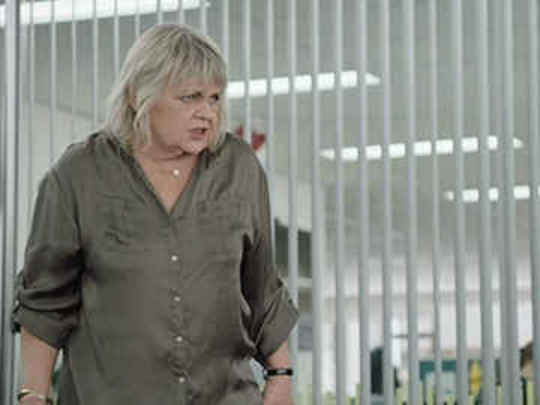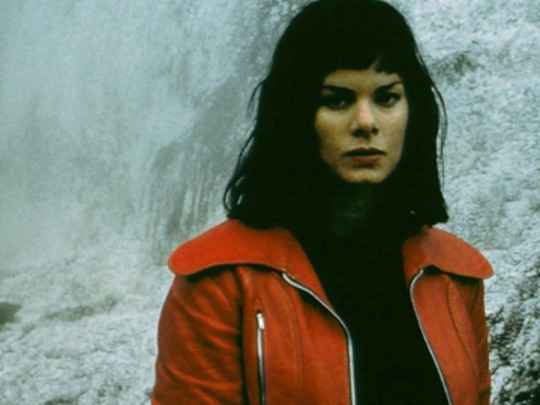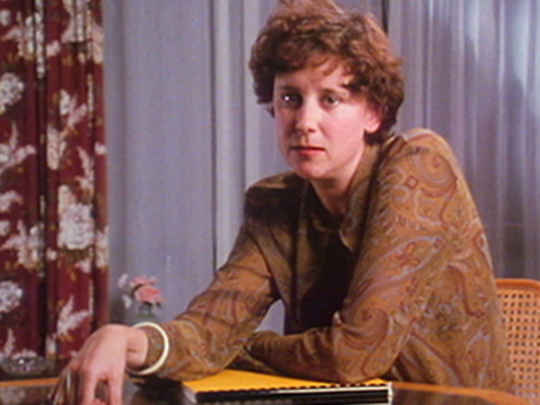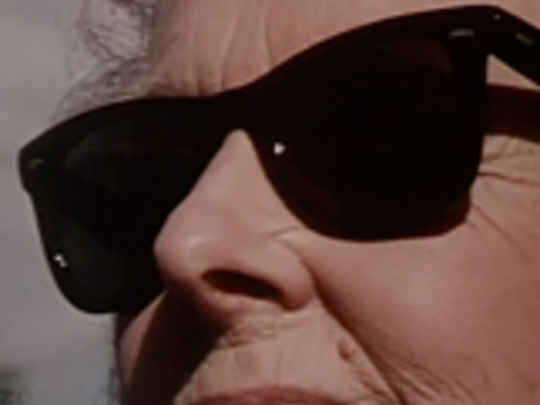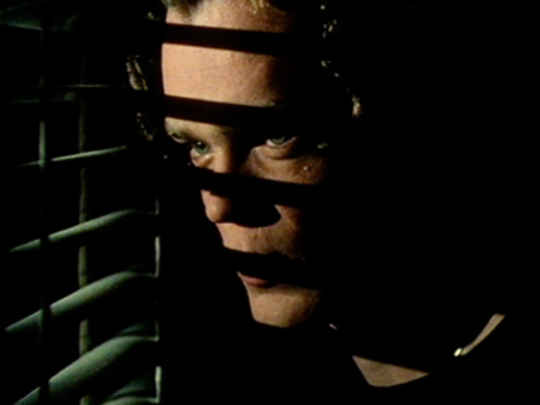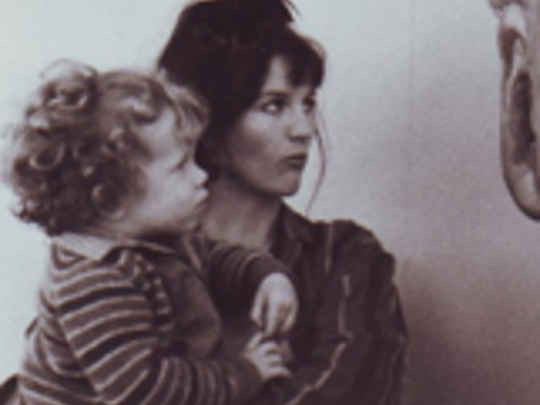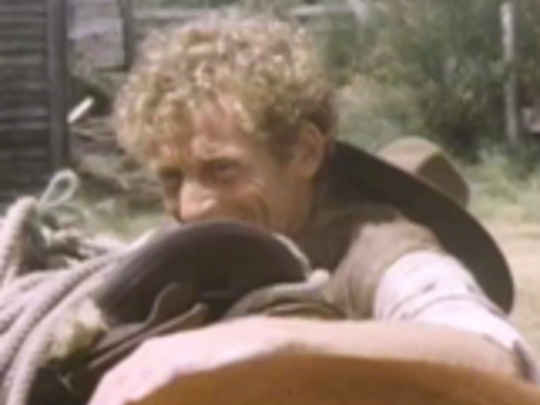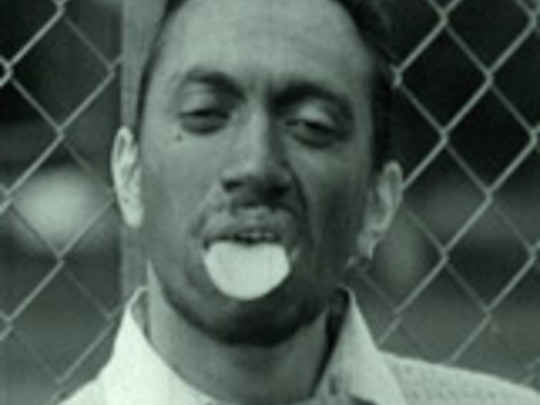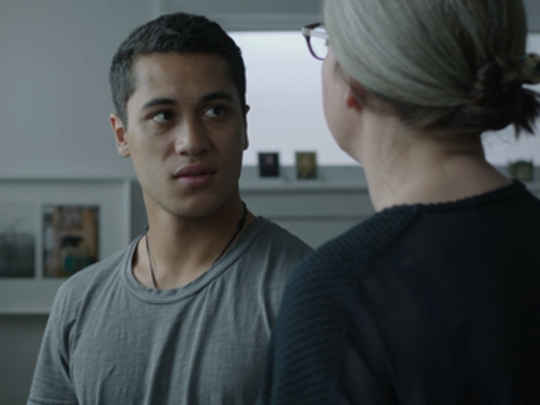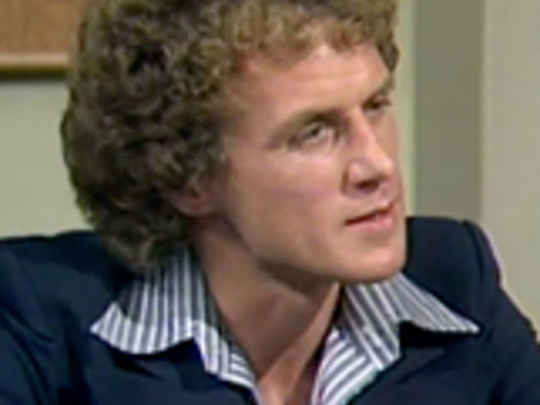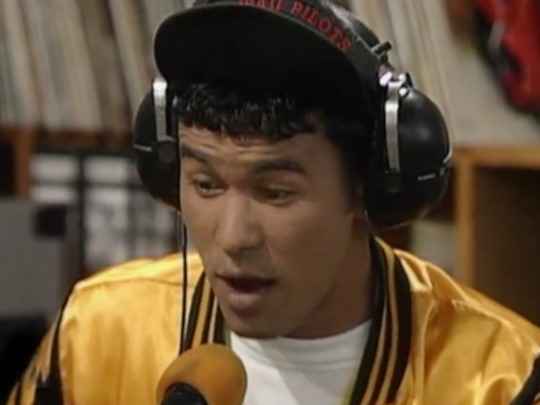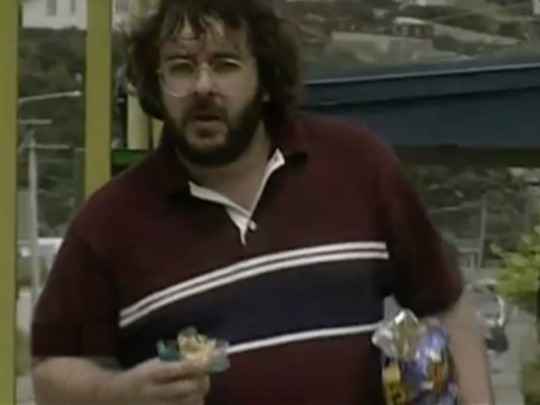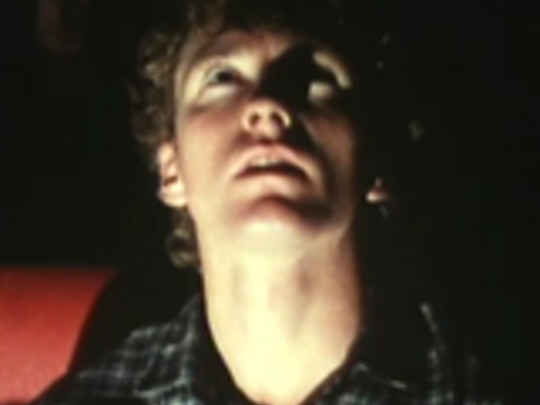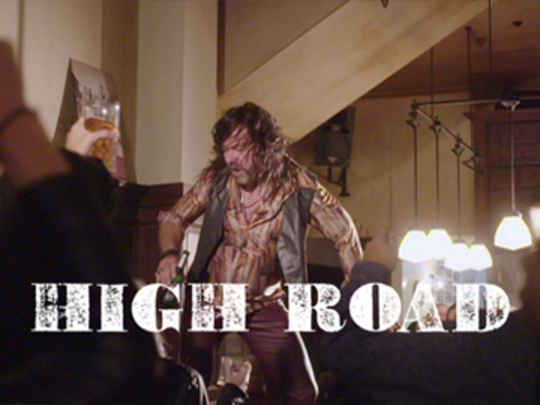On-screen for most of the film, Lucy Sheehan turns in a warm, convincing performance as the newly-nominated talkback host who has her own dramas to live through and her own story to tell.
– The Listener, 11 June 1988
Look something’s cropped up and I’m going to have to leave the studio for a while, but I’ll leave you in the capable hands of Jonah, who’s been cleaning the place for the last two years (laughter). No, no, she's my studio operator.
– Roger (Alistair Douglas) abruptly hands the microphone to Jonah (Lucy Sheehan)
…Hello. You rang before, didn't you? I recognise your voice, it was uh…Jim the last time? Okay what's you’re real name, Jerry?
– Jonah (Lucy Sheehan) recognises a repeat caller’s voice
You know that caller Jim, I bet he's had a very sad hard life hasn't he? And I don't know how you’d put it, but it seems to be that probably he started off on the wrong side of the tracks.
– 'Nightowl' (Nancy Flyger) speculates about another caller
You know when I first heard you — when I first heard you I thought, I think you've got a nice voice. I mean I don't know, but I feel as though I know you already.
– Jim (Peter Tait) speaks to Jonah off-air, shortly after being rude to her
Here she pictures downtown Auckland with a markedly fresh eye, capturing lurid, fluorescent-washed cityscapes, and drab interiors that underscore the film's themes of dislocation and loneliness.
– Director Costa Botes on Sally Bongers' cinematography, in his background piece on Talkback
Tena koe, Jonah … Hey that's a fast bit of promotion from cleaner to boss woman in one night. Gee, women can do anything aye?
– Radio caller Waitangi Joe (Te Whatanui Skipworth) on Jonah’s promotion
The fact that this remarkable film has somewhat slipped between the cracks of critical regard says more about the unfairly low status accorded to short films, than anything else. It's a wonderfully assured piece of drama, with a sensibility that evokes the cinema of northern and eastern Europe.
– Director Costa Botes, in his background piece on Talkback
Talkback uses that most revered of New Zealand social institutions — talkback radio — to support a low-key and inventive story which is part psychological thriller and part stylish (if diffident) black comedy . . . [Alison] Maclean shows an assured touch in the script she wrote with Geoff Chapple and the directing which cleverly exploits the visual aspects of an aural medium.
– Reviewer Peter Calder in The NZ Herald, 3 June 1988, Section 2, page 8
